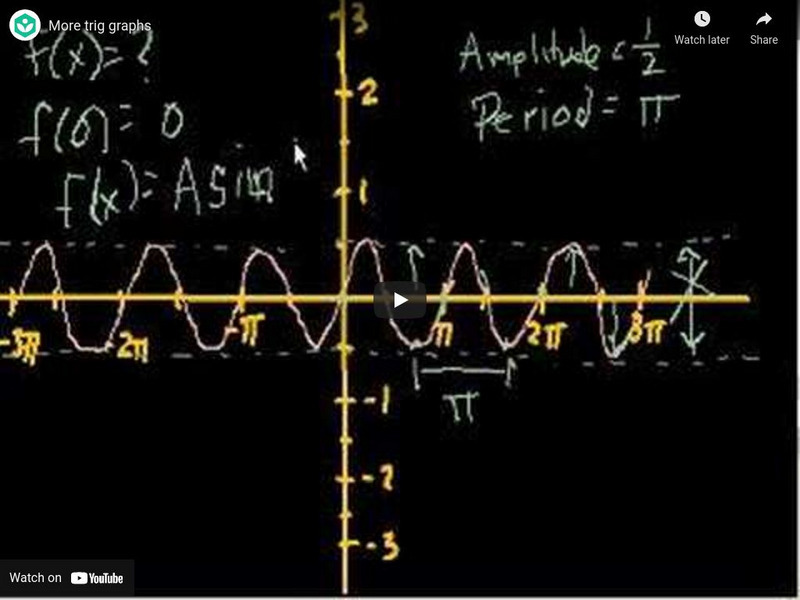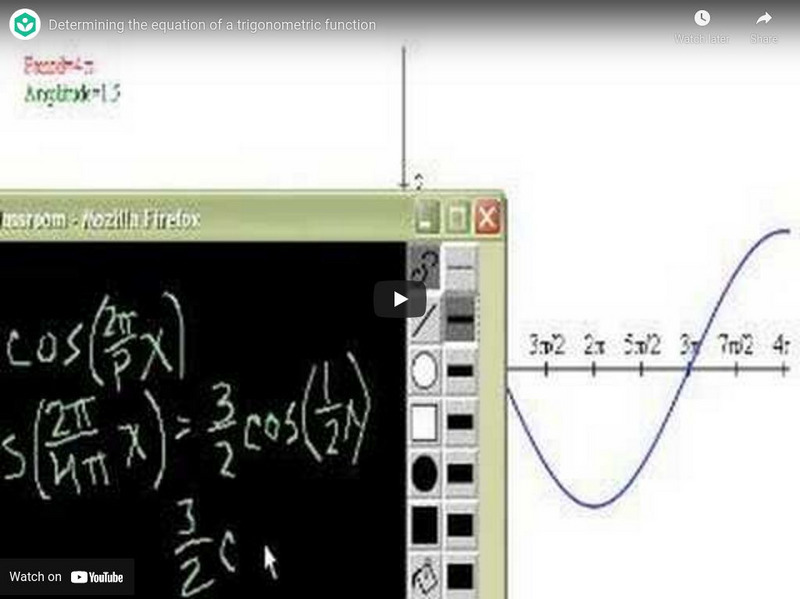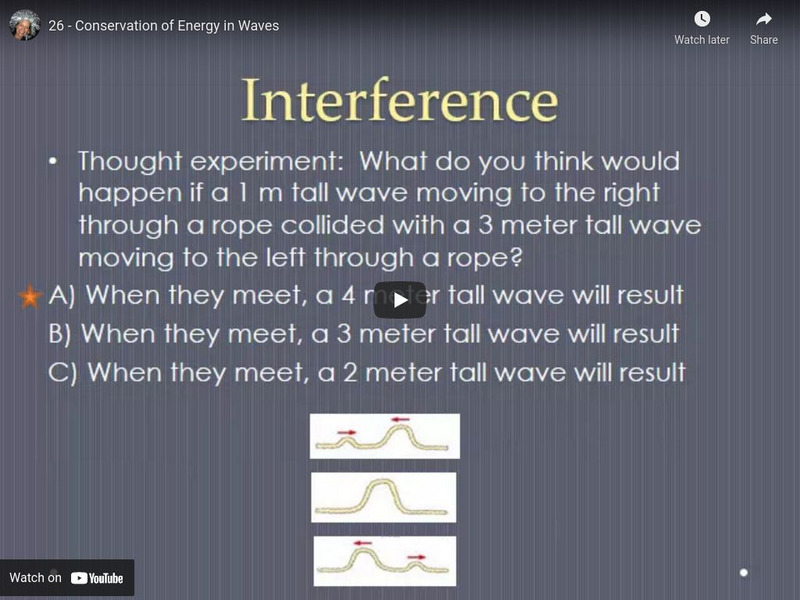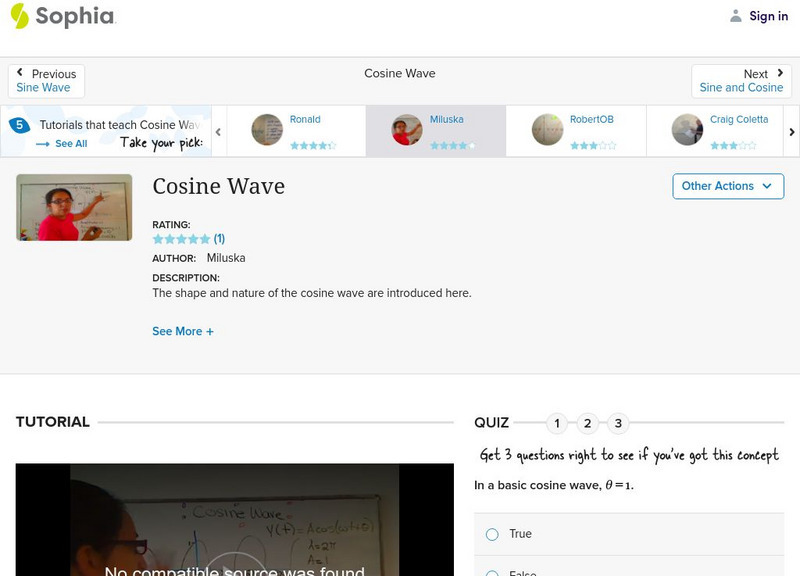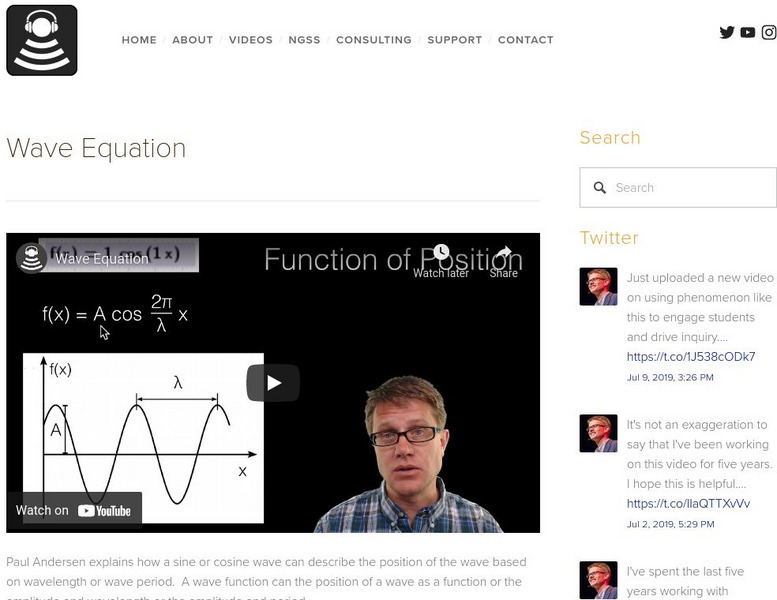PBS
Volume and Amplitude | UNC-TV Science
Future physicists pump up the volume while discovering the world of sound waves. Group members learn about the qualities of sound waves, the relationship between energy and sound volume, and the definition of amplitude while viewing an...
PBS
Electromagnetic Waves | UNC-TV Science
These waves aren't for surfing. Young scientists learn about electromagnetic waves and how their features affect the light people see. The video lesson describes the amplitude, frequency, and wavelength of the waves and how the...
Veritasium
Slow-Mo Non-Newtonian Fluid on a Speaker
Cornstarch and water on a speaker have a pretty cool effect. Beyond the coolness is a scientific analysis of amplitude and frequency. A video examines the patterns in the mixture when exposed to different frequencies in a video lesson....
Physics Girl
How I Broke a Wine Glass with My Voice (Using Science!)
You've seen talented singers break glass with a single high note ... is it as easy as it looks? Discover the physics behind the phenomenon with a video from the Physics Girl playlist. The resource covers sound wave terminology, tensile...
Bozeman Science
PS4A - Wave Properties
Does your lesson plan for wave properties have its ups and downs? Get some fresh ideas from an informative video! The narrator discusses PS4A, showing the must-know ideas for each grade level through concept maps and demonstrations.
Crash Course
Sound: Crash Course Physics #18
What makes sound possible? Answer this question while viewing the 18th lesson of a complete Crash Course physics series. After discussing waves in previous lessons, the narrator applies those characteristics to sound waves and their...
PBS
Can We Hear Shapes?
What do shapes sound like? Scholars learn about the frequencies of pure tones created by vibrations of shapes. The video first considers the case of string, then moves on to two dimensions. It touches upon Fourier series and a question...
Bozeman Science
Sound Waves
How does that sound look? Teach the characteristics of sound waves through a video lesson that shows an analysis of different frequencies and amplitude of sound waves. The instructor also represents the characteristics of the sound...
Steve Spangler Science
Pendulum Catch - Sick Science! #013
What a fun demonstration! Show the video, or better yet, have your physics learners construct this hex nut pendulum and test it themselves. Then have them discuss in groups why the single hex nut wraps around the finger. See if they can...
PBS
Measuring Waves | UNC-TV Science
Discover the secrets used by scientists to measure mechanical waves. Young physicists learn about measurable wave qualities—amplitude, wavelength, and frequency—by watching and listening to a video discussing longitudinal and transverse...
Khan Academy
Khan Academy: Trigonometry: More Trig Graphs
Video about translating between the graph and equation of trigonometric functions. Examples consist of writing the equation a sine function from its graph and graphing a cosine function from its equation. [5:13]
Khan Academy
Khan Academy: Trigonometry: Determing the Equation of a Trigonometric Function
Video about finding the equation of a trigonometric function from its graph. Two examples are sine functions and one example is a cosine function [9:52]
Khan Academy
Khan Academy: Trigonometry: Graphing Trig Functions
Video showing how to graph the sine and cosine functions from their equations with modifications to the amplitude and period. Also gives an example of determining the trigonometric function using the features of the graph. Includes link...
PBS
Pbs Learning Media: Pitch: Making Guitars
Watch the rubber bands vibrate on homemade guitars in this video segment adapted from ZOOM as cast members talk about pitch and demonstrate how to make a cereal box instrument. [2:59]
Other
Conservation of Energy in Waves
High school teacher Kate Nichols explains that wave energy is equal to the amplitude of a wave. Looks at different scenarios where we may notice that wave energy is being conserved or not. The conversion of wave energy into another type...
PBS
Pbs Learning Media: Pitch: Super Sounding Drums
This video segment, adapted from ZOOM, explores sounds made by homemade drums of different sizes, shapes, and materials. [3:41]
Science Friday Initiative
Science Friday: Turning Down Your Ears
Do the ears have a built-in protection against loud sounds? New research finds that the ears may be able to turn down the volume to avoid damage. [12:28]
Sophia Learning
Sophia: Cosine Wave: Lesson 4
The shape and nature of the cosine wave are introduced here. This lesson [1:36] is 4 of 7 in the series titled "Cosine Wave."
Bozeman Science
Bozeman Science: Wave Amplitude
In the following video Paul Andersen explains how the amplitude of a wave is a measure of the energy of the wave. He gives several examples of wave amplitude and shows you how to calculate the wave of a transverse and longitudinal wave....
Bozeman Science
Bozeman Science: Wave Equation
In the following video Paul Andersen explains how a sine or cosine wave can describe the position of the wave based on wavelength or wave period. A wave function can the position of a wave as a function or the amplitude and wavelength or...
Sophia Learning
Sophia: Writing the Equation for Transformed Sine and Cosine: Lesson 3
This lesson explain how to write the equations for sine and cosine functions, based on their transformations. It is 3 of 7 in the series titled "Writing the Equation for Transformed Sine and Cosine."
Khan Academy
Khan Academy: Harmonic Motion: Harmonic Motion Part 3 (No Calculus)
Video lecture explores how to figure out the period, frequency, and amplitude of the harmonic motion of a mass attached to a spring. [9:44]
PBS
Pbs Learning Media: Inverse Square Law
This animation from KET's distance learning physics course demonstrates the mathematical formula for a scientific law as it applies to light.
Khan Academy
Khan Academy: Amplitude and Period Cosine Transformations
Visualizing changes in amplitude and period for a cosine function










